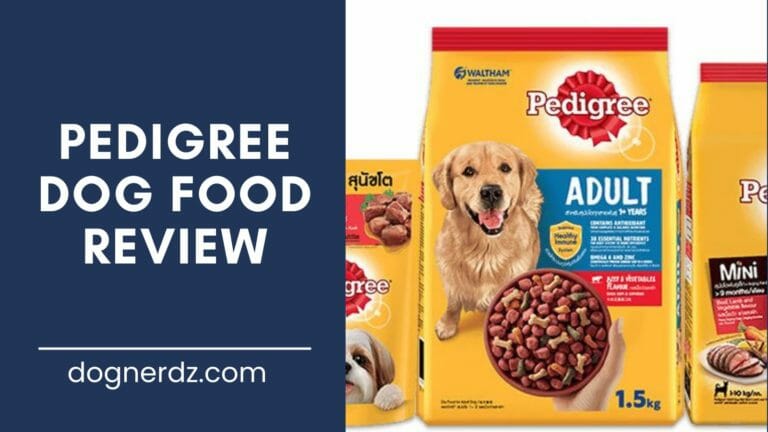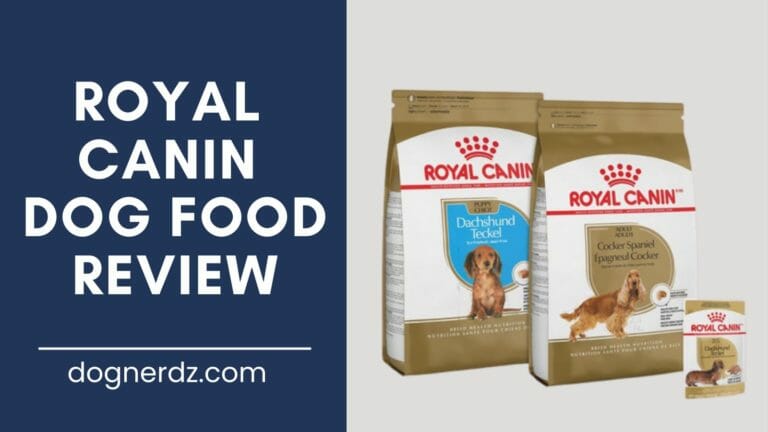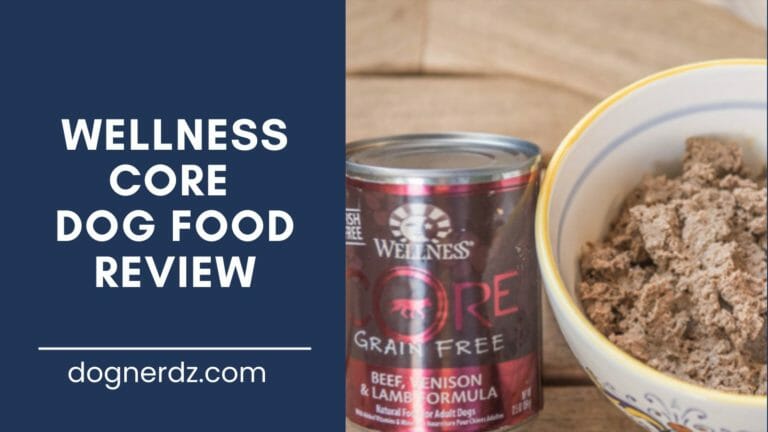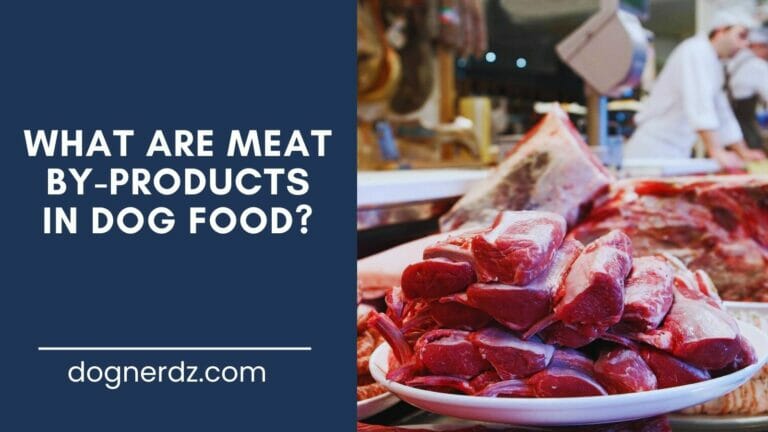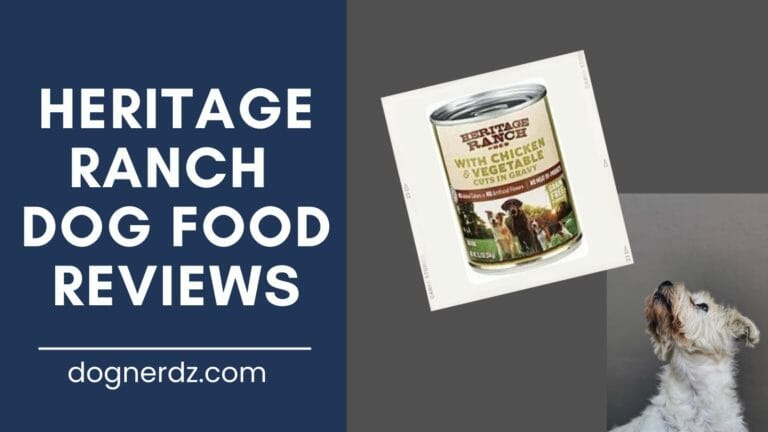How Much to Feed Corgi Puppy?
A Corgi is considered a small to small-medium breed. The feeding amount and schedule will be similar to other dog breeds of the same size, but it’s more than how much you feed them.
It’s also about the brand, the frequency, and the overall routine for your new Corgi puppy. We’ll cover all of that today plus how to calculate the correct amount and some facts about Corgi health.
Table of Contents
How Much Food Do I Give My Corgi Puppy?
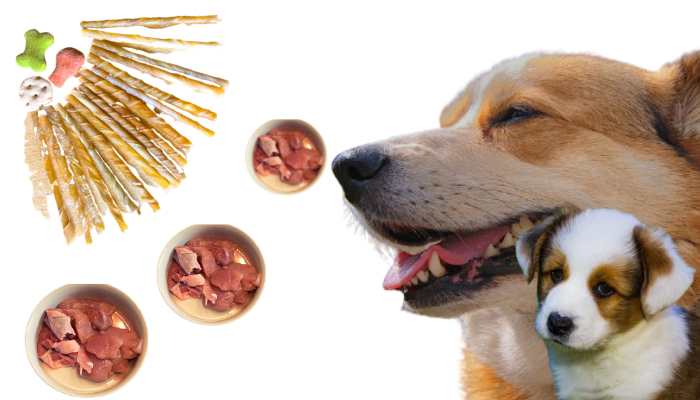
How much food you give your Corgi puppy will depend on his size and even his personality. In general, a happy and healthy pup will be rambunctious, mischievous, and get up to no good.
This behavior is undeniably adorable, but you need to make sure his daily nutrition intake can match his energy output. There are a few factors to look at to determine how much you should feed your Corgi puppy.
The Caloric Needs of a Corgi Puppy
Determining the caloric needs of your Corgi puppy is an essential step in feeding. Generally, puppies require more calories compared to adult dogs due to their high energy levels and rapid growth phase.
On average, a Corgi puppy will need about 55 calories per pound of body weight per day. Keep in mind this is just an estimate and individual caloric needs can vary depending on your puppy’s specific age, weight, and activity level.
Exercise Routine
The first one is the exercise routine. Puppies are not fully grown until about a year, and between when the owner brings them home until the day they become adults, too much exercise is a bad thing. Their bone plates haven’t fully developed, and vigorous exercise could hinder healthy growth. You should feed your pooch around a cup of food per day spread out into 3 to 4 sessions.
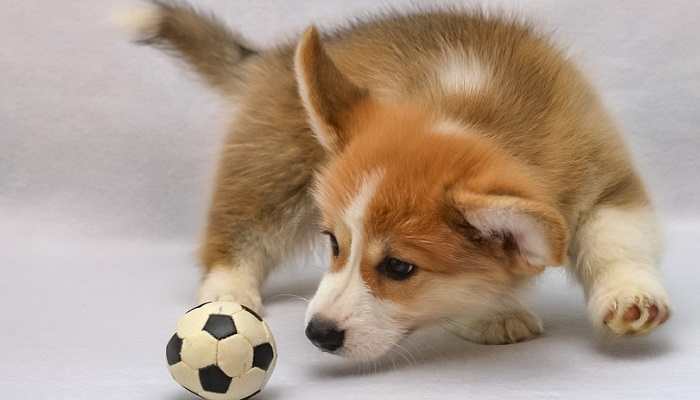
A Corgi puppy is more active than an adult, and they need more fats, carbs, and protein to grow. This is why doggy food is divided into puppy, adult, and senior food. Sometimes how much your Corgi puppy eats will vary.
On gloomier days you may find your pup to be lazier, which will mean he will eat less food. Then again, on sunny days you may have a runaway train of a pup that seems to have endless reserves of energy.
On those lazy days, don’t be surprised if your puppy doesn’t finish all of his food. He may also seem hungrier on the more active days, and it is okay to adjust as needed on special occasions.
You can do so by setting down his food and giving him 10-20 minutes to finish it. If he doesn’t, remove the bowl. This is also an excellent way to train your puppy and discourage free feeding. It will also make it easier for you to gauge if your pup needs more food.
Age
How much you feed your corgi puppy will also increase as he ages. When you just bring your Corgi pup home, he will most likely be around 2-4 months old. During this time, your dog will need anywhere between a third of a cup to 1 cup per day depending on the weight. Some pups are larger than others, so the amount may differ.
The best way to determine how much food to feed Corgis at such a young age is to take a trip to the vet. The vet will be able to determine your Corgi’s projected weight to give you suggestions on the right formula and amount. Think Corgi is the puppy for you? Here’s a detailed Corgi puppy buyer’s guide.
Frequency
Not just Corgi owners, but all dog owners should keep in mind that puppies need to be fed much more frequently than an adult dog. Their entire daily amount should be spread throughout the day from 3-4 times at various intervals.
The frequency of the feeding will decrease as your Corgi puppy ages. When you first bring your Corgis home, start them off at 4 meals per day, this will help with digestion.
As your Corgi nears 6 months, you can decrease the frequency to 3 times a day and then 2 around 8 to 12 months of age.
Common Feeding Problems and How to Avoid Them
Overfeeding and underfeeding are the most common feeding problems when it comes to puppies. Overfeeding can lead to obesity, a condition Corgis are prone to due to their body structure.
Obesity can lead to numerous health issues including heart disease, diabetes, and joint problems.
On the other hand, underfeeding can lead to malnourishment and stunted growth. To avoid these problems, stick to the recommended feeding guidelines and regularly monitor your puppy’s weight and body condition.
What about Treats?
You cannot skimp on treats as they are excellent training tools and just a nice snack for your pup. Many puppy treats are infused with vitamins and minerals that can supplement what dog foods lack.
However, we advise pet parents to refrain from overfeeding treats because they take up a portion of your dog’s daily calorie intake. You need to take the treats into account with the dog food when you plan your Corgi’s daily meals.
You should also know what to avoid, such as rawhide and treats with artificial additives such as flavor enhancers and coloring. Treats can be given at any time of the day, although we don’t recommend starting the day off with a treat before breakfast and keep from feeding your Corgi puppy a treat too close to bedtime.
What Should I Feed My Corgi?

Dietary decisions are among the most complicated considerations when you first bring home a Corgi puppy. We get asked questions like what type of food to feed to what ingredients owners should look for.
Here’s a comprehensive list of recommended dog food for Corgis
We understand how it can be daunting when it comes to picking dog food because the diet you feed your Corgi puppy early on will impact potential health problems down the line such as hip dysplasia.
A balanced diet is critical for Corgi puppies to develop healthily. A balanced diet includes all necessary nutrients, including proteins, carbohydrates, fats, vitamins, and minerals.
Protein is crucial for their muscle growth, and carbohydrates provide them the energy they need.
Healthy fats help with brain development, and vitamins and minerals support their overall health.
Choosing a high-quality puppy food that is specially formulated to meet the nutritional needs of growing puppies should be your goal.
Let’s start by identifying the type of puppy food and then going into the formula in more detail.
Kibble
Kibble, also known as dry food, is the most common puppy food pet owners feed their dogs. In fact, many puppies eat dry dog food well into adulthood. The right kibble formula is very nutrient-dense, but since it’s dry food, you need to make sure your dogs always have access to water. Kibble comes in many shapes and sizes, so be sure to pick one that your Corgi puppy can handle.
Small breed kibble is smaller than regular kibble and made to fit inside your dog’s tiny mouth. Other than nutritional benefits, feeding your dog kibble can also bring other advantages such as dental health.
The hard and rough texture of the kibble act as scrapers against your Corgi’s teeth to prevent plaque and tartar buildup.
Wet Food
Then there is the option of wet dog foods. Also referred to as canned food, wet dog food is much more flavorful and desirable to most dogs. Of course, you must make sure to pick canned food that is meant for puppies.
Wet food can also act as dog meal toppers, which means you can mix it with kibble. Food topper wet dog food is considered complementary and won’t have enough nutrition to be fed on its own. Even so, you must still take the time to account for the extra calories.
Wet food is an excellent choice for a picky Corgi puppy that may reject dry dog food. We don’t recommend giving in to your picky eater’s demands and feed a Corgi human food scraps, which is why wet dog food is a great alternative.
Subscription Food (Fresh Food)
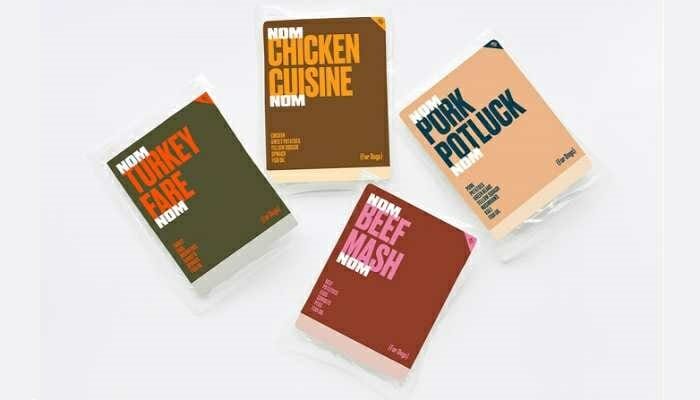
Speaking of human-grade food, subscription dog food is all the rage right now and a trend we hope is here to stay. The difference between subscription food and commercial dog food is subscription dog food uses human-grade ingredients and is freshly cooked and served.
In fact, a
Your Corgi puppy needs a balanced diet, and for inexperienced Corgi owners, you may not know what that looks like. Puppy food needs to contain certain amounts of everything from protein to carbs, which is a science within itself.
The right type of recipe can help your Corgi prevent future ailments such as hip dysplasia. Another major benefit to fresh puppy food is each recipe is unique to your pup.
The company will tailor the recipe to suit your dog’s needs depending on his energy levels, body weight, preference, and more.
Raw Diet
Then there is the raw diet, also referred to as BARF. A completely raw diet is still a controversial topic among experts, but we feel that if you decide to go with this, make sure you provide high-quality raw food to avoid bacterial infection and food poisoning.
Like wet food, you can opt for a partially raw diet for your dog. There are freeze-dried raw pieces that can be sprinkled onto kibble, fresh or canned food.
The Importance of Balanced Diet for Corgi Puppies
When to Switch to Adult Food
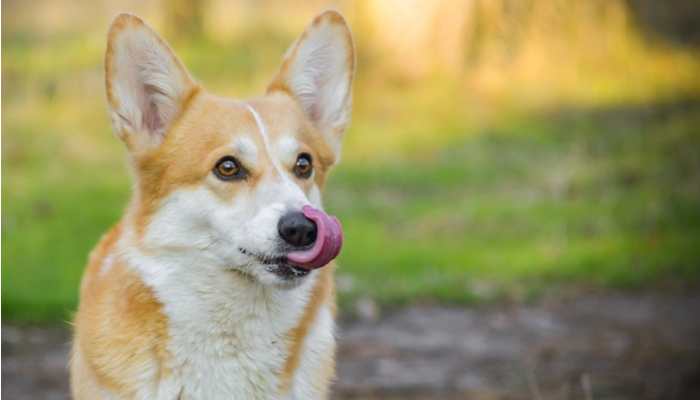
A Corgi puppy is generally fully grown at about 10-12 months of age, which is also a suitable time for you to switch from puppy food to adult food. The main difference between puppy food and adult dog food is the protein and fat content.
Puppy food is much more nutritious because a Corgi puppy needs more to grow and thrive into a healthy adult. However, once they enter the adult phase, all that’s required is maintenance.
You don’t need to switch your Corgis to adult food on the day of their birthday, one or two months give or take in either direction is fine.
But if you feed a Corgi puppy food when they are fully grown for more than a few months, he will run the risk of becoming overweight, which can be a huge problem for Corgis due to their stature.
The transition from puppy food to adult food should be done gradually over a week or two.
Start by mixing a small amount of adult food into your puppy’s current food, gradually increasing the amount of adult food while decreasing the amount of puppy food each day. This gradual transition can help avoid gastrointestinal upset.
What to Stay Away From
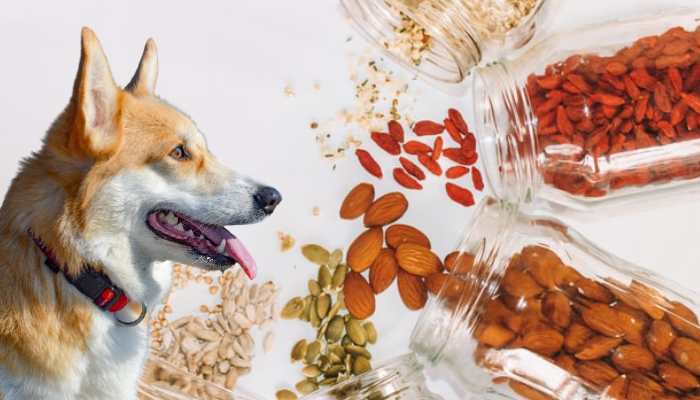
In general, stay away from artificial ingredients and preservatives. Those are big no-nos for any type of food for humans and dogs alike. Then there are the ingredients that your dog may not able to process such as grains.
If you suspect your Corgi puppy may be allergic to grains, take a trip to the veterinarian just to make sure. If it turns out to be true, then your veterinarian should have some recommendations for grain-free formulas. Check out some grain-free food options for puppies.
Then there are the ingredients that aren’t very harmful to your dog per se, but aren’t beneficial in the long run. Certain recipes are also much less desirable than others when you look at the first few ingredients.
As a rule of thumb, our experts say to look for a recipe with as many clearly-labeled animal sources of protein. Then as you make your way down to the vitamins, minerals, fruits, and veggies section, you also want to make sure there are as many natural ingredients as possible. If you can find organic recipes, then that’s even better.
You won’t want fillers, byproducts, or meals in your dog food, although some meals are okay if they have organs and cartilage, which can actually be beneficial for your dog.
All dog food has some type of preservative to keep it from spoiling. Even if it can’t be helped, you can still pick the type of preservative that’s present in the food to make sure it’s as safe as possible.
Mixed tocopherols are suggested because they are natural options. Artificial ingredients such as flavors and colors are used by manufacturers for your benefit and not for the health or appeal of your dogs.
Your Corgi puppy won’t notice if his food is a boring brown color or looks festive with red, green, orange, and yellow hues. The presentation of the food has little to do with the nutrition and is made to look enticing to you and not your Corgi puppy.
We Think You’ll Like:
How to Make Dry Dog Food More Appealing (5 Ways)
Frequently Asked Questions
How much should a Corgi eat per day?
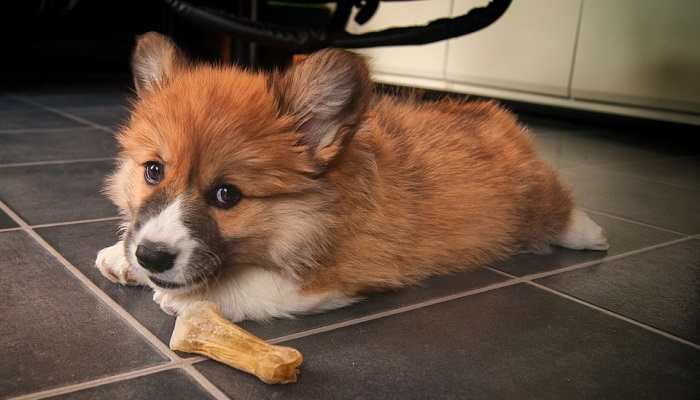
Depending on the size, energy level, and health of your Corgi, we recommend anywhere between 1 cup to 1.5 cups of food per day. This isn’t per meal, but the amount per day.
You should spread out the amount of food for your dog to 2 times a day if possible. Each dog is different and will have varying nutritional needs. Your best bet to get it right is to pay the vet a visit.
Related: How to Measure Dog Food Portions
Why are Corgis always hungry?
Many dog breeds love to eat, and Corgis are no exception. They are a very food-motivated breed, and you will notice this as soon as you bring your Corgi puppy home.
Unfortunately for your stout friend, you must monitor their food intake very strictly. Because of their elongated bodies and short legs, obesity is a bigger issue for Corgis compared to other dog breeds.
An overweight Corgi will have a bulging belly that can weigh down his spine and cause spinal issues.
Do Corgis love to eat?
Yes! Corgis are passionate eaters, which makes your job as a Corgi owner much harder, especially when they are puppies. Keeping them from food can be difficult, but the food-loving trait actually comes in handy for training. Y
our Corgi will be willing to put in a lot of work just to get the food he wants. We advise parents to exercise portion control to avoid your Corgi puppy putting on the pounds.
Do Corgis need supplements?
Yes, like many other dog breeds, Corgis need supplements to help with various problems such as IVDD (intervertebral disc disease) and dysplasia. Corgis suffer from spinal injuries more easily than other dogs and can do with glucosamine and chondroitin supplements to help with maintenance.
Omega fatty acids will help keep their skin and coats healthy and probiotics are excellent for digestion.
Do Corgis have a lot of health problems?
Corgis have health problems, but not much more than some other breeds such as brachycephalic dogs. They aren’t as healthy as the sturdy Siberian husky, but a Corgi puppy can prevent many future health ailments with proper care and the right diet. Their most common issue is with the spine. Like Dachshunds, Corgis are elongated dogs with short legs, which results in IVDD among other things.
Conclusion
Feeding a Corgi puppy is similar to feeding a puppy of any breed. Puppy dogs require more frequent meals throughout the day.
For a Corgi puppy, the proper amount is anywhere between 3/4 to 1 cup depending on the age, energy level, and size of your pup. Since a Corgi puppy is a food lover, it’s important to monitor his daily caloric intake to maintain his weight.
Expert Tip
Train your Corgis early with high-value dog treats. Since they are very food-motivated, it’s a very effective training method. Reward them for doing good and only use the more enticing treats for training.
Did You Know?
Corgi in Welsh means dwarf dog! How cute is that?


